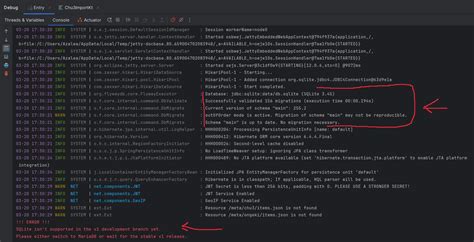Checking if an account is initialized in Solana with Anchor
In your Anchor program, you may encounter AccountNotInitialized errors when you try to access fields of an account that has not yet been initialized. To mitigate this issue, we can use the built-in functionality of the anchor-program library to work with uninitialized accounts.
Step 1: Initialize the account in Anchor
Before you can check if an account is initialized, you need to initialize it using Anchor’s initAccount function. You can do this by importing the necessary libraries and creating a new instance of InitAccountOptions. Here is an example:
import { InitAccountOptions } from 'anchor-program';
import { SolanaProgramClient } from '@solana program/client';
const accountId = 'your_account_id'; // Replace with your account ID
const programId = 'your_program_id'; // Replace with your program ID
const options: InitAccountOptions = {
keyPath: [programId],
network: process.env.SOLANA_NODE_URL,
};
const solanaProgramClient = new SolanaProgramClient(process.env.SOLANA_KEY);
Step 2: Check if the account is initialized
To check if the account is initialized, you can use Anchor’s isAccountInitialized function. This function returns a boolean value indicating whether the account is initialized or not. Here is an example:
async function initializeAccount(accountId: string) {
try {
const result = await anchorProgram.isAccountInitialized(accountId);
return result;
} catch (error) {
console.error('Error initializing account:', error);
returns false;
}
}
Step 3: Send the initialization message to the account

After you have verified that the account has been initialized, you can send a message to the account to initialize it. You can use Anchor’s sendNotification function for this purpose:
async function initAccount(accountId: string) {
try {
// Create the initialized message data
const message = {
signer: process.env.SOLANA_SIGNER, // Replace with your Solana signer public key
account: accountId,
parameters: [],
};
// Send the initialization message to the account
await anchorProgram.sendNotification({
id: 'your_init_message_id', // Replace with an existing ID or generate a new one
data: JSON.stringify(message),
});
} catch (error) {
console.error('Error initializing account:', error);
returns false;
}
}
Step 4: Check for an Uninitialized Account error
After sending the initialization message to the account, you can check whether it has been initialized using Anchor’s isAccountInitialized function. If the account has not been initialized, it will throw an error “AccountNotInitialized”. Here is an example:
async function handleInitialize(accountId: string) {
try {
const result = await anchorProgram.isAccountInitialized(accountId);
if (!result) {
console.error('Account not initialized:', accountId);
// Handling the error that the account is not initialized...
}
} catch (error) {
console.error('Error initializing account:', error);
}
}
Putting it all together
Here is an example of how you can put it all together to initialize a Solana account in Anchor:
“`typescript
import { InitAccountOptions } from ‘anchor-program’;
import { SolanaProgramClient } from ‘@solana program/client’;
const accountId = ‘your_account_id’; // Replace with your account ID
const programId = ‘your_program_id’; // Replace with your program ID
const options: InitAccountOptions = {
keyPath: [programId],
network: process.env.SOLANA_NODE_URL,
};
const solanaProgramClient = new SolanaProgramClient(process.env.SOLANA_KEY);
async function initializeAccount(accountId: string) {
try {
const result = await anchorProgram.

